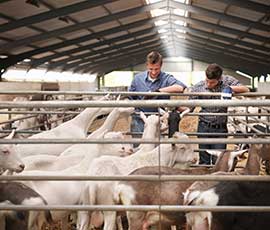Experts assess post-AWB pay settlements

A month on from the end of the Agricultural Wages Order, pay and conditions settlements are already being achieved on many farms.
Smiths Gore reports that the national minimum wage rise and matching inflation have replaced the AWO as the most common measures used to set salary reviews for about 17,000 farm and estate staff working on more than 800,000ha in England.
No freezes and no reductions were recorded in those businesses which had concluded their reviews, with 2% being the most common review agreed and about three-quarters reporting a rise of between 1.9% and 2.5%.
“Over 75% of the salary recommendations we made were for 1.9%, the national minimum wage increase, or above. This compares well with national earnings inflation, which is 1.0% for 2013 for the whole economy,” said the firm’s head of research Jason Beedell.
“Everyone would like to be paid more but the rural economy is still in recovery. The problem is of course that the cost of living is rising faster than wages; CPIH, which includes housing, is rising by 2.5% at the moment.”
Solicitor Roythornes has been advising businesses mainly in the East Midlands. Smooth negotiations had been achieved because clients thought long and hard about the changes they wanted to make and ensured that the workforce knew how valued it was, said employment partner Phil Cookson.
“Everyone would like to be paid more but the rural economy is still in recovery. The problem is of course that the cost of living is rising faster than wages; CPIH, which includes housing, is rising by 2.5% at the moment.”
Jason Beedell, Smiths Gore, head of research
“The most difficult issues have related to sick pay – some clients have opted to reduce to a pure statutory sick pay, others to maintain a full Agricultural Wages Order Sick Pay equivalent.” Most had gone for somewhere between the two with an element of discretion built in.
“Employees have been happy to accept the situation as all the changes have been accompanied by a pay increase – locally anywhere between 2% and 4% seems to be the market rate.
“My feeling is that clients have tended to increase the rate of pay a little more than they might otherwise have done to see the changes implemented without too much fuss.”
How are negotiations going on your farm? Let us know on our forums or contact us by email suzie.horne@rbi.co.uk, or write to Farmers Weekly at Quadrant House, the Quadrant, Sutton, Surrey, SM2 5AS
Expert guidance on farm pay negotiations as AWB ends
